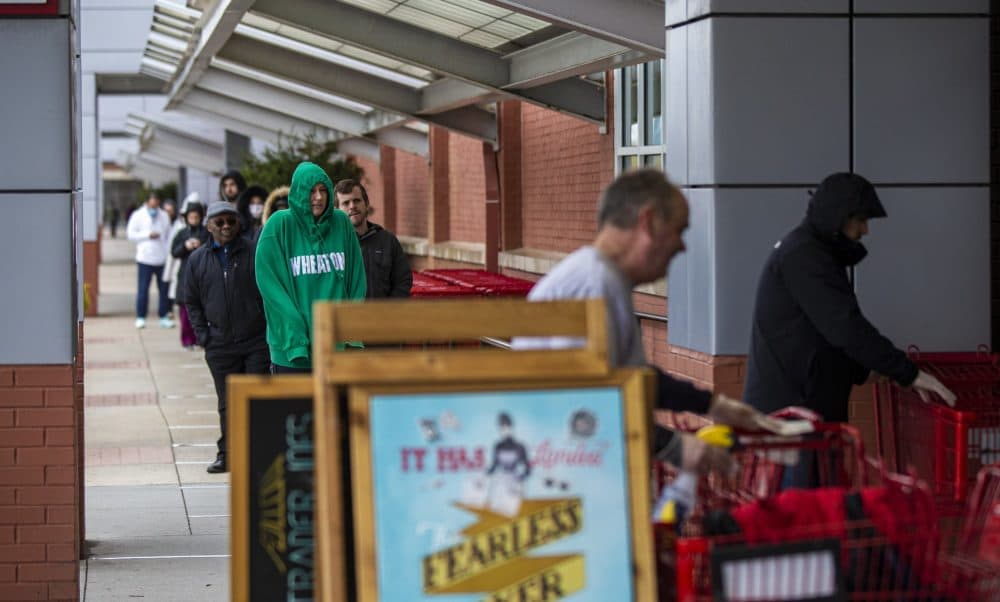Advertisement
Coronavirus Coverage
Gov. Baker Taking Steps To Prevent Food Store Overcrowding

The Baker administration plans to call for the number of people allowed in a grocery store at one time to be limited to 40% of the store's capacity in an additional step aimed at helping people stay safe while out of their homes, Lt. Gov. Karyn Polito said Tuesday.
The move follows a March 25 order imposing new distancing and sanitation requirements for grocery stores and pharmacies, which are among the few businesses that have been deemed essential by the administration and are allowed to remain open during the ongoing state of emergency.
"We will be issuing, later today, further guidance relative to grocery stores so there's more of a uniform distribution across our communities about how to provide a safe environment for customers as well as the workforce at our groceries," Polito said during a press conference.
"We are issuing guidance that will say 40% of the occupancy — and that occupancy will include both employees and customers — as the number to be enforced by local boards of health relative to the number of people in store to be able to access the goods and the necessities they need for the trip to the groceries and then to return home," she said.
With the number of COVID-19 cases and associated demand for hospital beds, equipment and services anticipated to peak in Massachusetts sometime this month, state and local officials have been reiterating their message about the importance of limiting trips outside the home and maintaining physical distance from others.
The Department of Public Health's March 25 order required grocery stores and pharmacies to set aside at least one hour per day for adults age 60 and older to shop; close any self-service food stations; mark "social distancing lines" beginning 6 feet away from checkouts; provide alternative assignments for employees who are at high risk of contracting the coronavirus; instruct employees who are sick to stay home; and offer sanitation options, like hand sanitizer and disinfectant wipes, to clean shopping carts and other frequently touched surfaces.